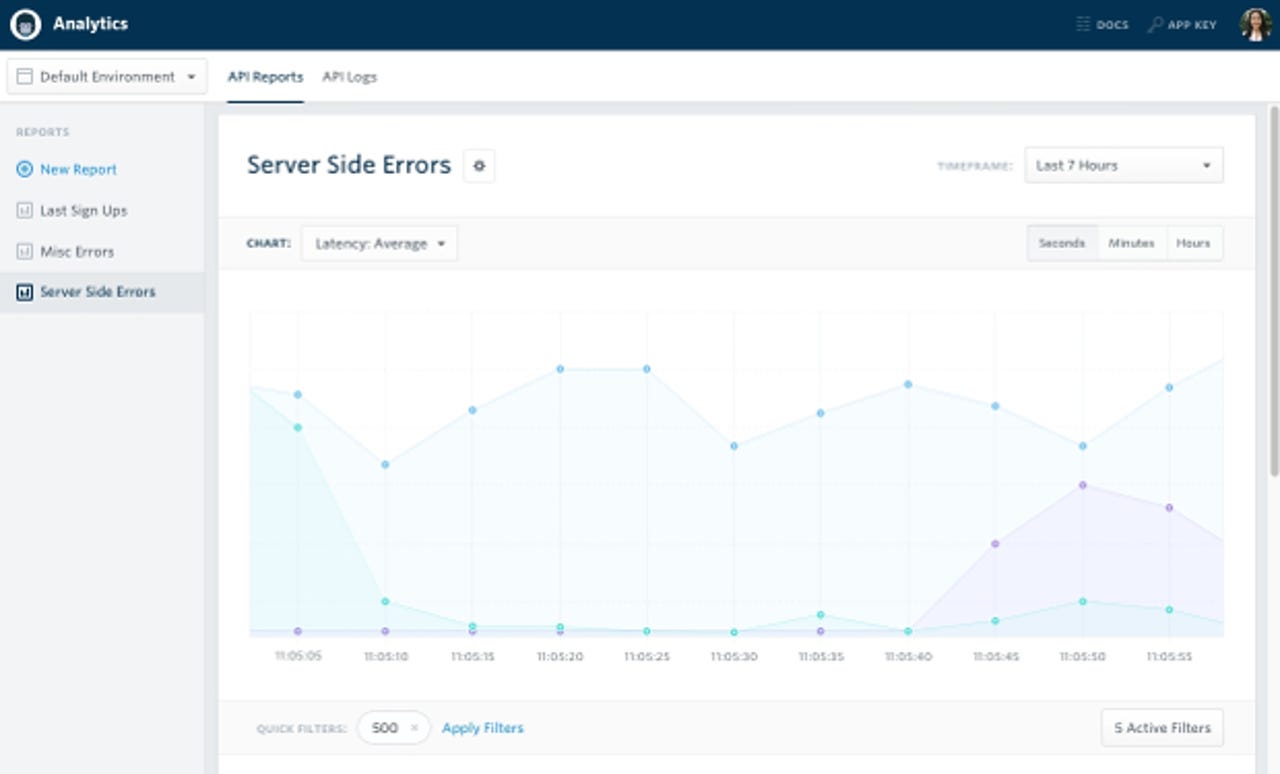Kong firm Mashape unveils real-time analytics for APIs and microservices


Having open-sourced the Kong API manager in April, Mashape says it's now launching the analytics tool it uses to monitor and debug the 13,000-plus APIs served by its API exchange.
The move is designed to give developers and DevOps teams access to what the company is calling the first analytics platform targeted at understanding APIs and how they function inside microservices.
Mashape CEO and co-founder Augusto Marietti said existing analytics options are either too expensive or too broad, with a focus on comprehensive log management.
"There's nothing really for tracking APIs, from the perspective of pricing, efficiency and also in the way the product is designed to easily visualise microservices problems at scale," he said.
"There's Google Analytics for web pages and Mixpanel for events but there's really nothing in the middle focused on doing the one thing really well - inspecting and visualising logs and APIs for microservices.
"So we're pushing this out in a way that you can easily download an agent and visualise and monitor all your API infrastructure, all your microservices, without writing a language, without understanding new tools - very simple."
In microservices architectures, apps are built as a suite of small, semi-autonomous processes that perform specific tasks and use APIs to communicate with each other. Microservices are meant to be easy to use and scalable, and increasingly figure in web, mobile and internet-of-things apps.
Unlike Kong, Mashape Analytics is not open source. It is available as a cloud software service or on premise, depending on the plan chosen. Users can start with a limited free edition that offers only 24 hours' data retention.
"Then, when you start to pay, you can go from three months to unlimited data retention. The key metric is data retention. The SaaS base is $145 for two weeks of data retention, and $495 is three months of data retention," Marietti said.
"Then you have the enterprise packages that have unlimited data retention and SLAs. They can be deployed on your cloud or on prem. Then there's also LDAP authentication, which is more custom pricing."
The Mashape Analytics tool, which integrates with Kong, is aimed at providing insights into API performance and bottlenecks, the volume of requests processed, and usage patterns in real time.
"You can get error alerts and you can debug. You can also get the latency. Let's say microservice A is very fast but for some reason today at 3pm it started to have 150 millisecond latency. It tells you that and then it's going to send you an alert," Marietti said.
"For debugging microservices, we have a very cool feature called Replay. Let's say there's a call from an API that didn't get through. You can replay that same call as often as you want to see what actually happened to the transaction."
Users can use the tool to conduct A-B testing to spot slow endpoints and identify important ones so that they can be optimised. Mashape Analytics can also analyse communication between microservices hosted inside Docker containers.
"This doesn't only track your internal APIs. It's also very good for your partner relationships because it tells you what's going on in your partner infrastructure, not only your internal infrastructure," Marietti said.
"It would take months and months of engineering time to build this yourself. But most of all it's hard to build because there are a lot of problems with digesting a huge amount of data. There's also a lot of technology in the product that's very cool, which we built over a number of years. That's very hard to replicate."
Among the tool's features are custom dashboards, which offer the ability to create reports and filters, and sort by API properties.
Mashape.com launched in 2012 as the first API marketplace, processing API requests and distributing APIs for customers.
According to Mashape, it is now the largest marketplace of its kind, processing billions of transactions per month through its proxy, with more than 13,000 APIs and about 140,000 developers using its services.
More on microservices
- Kong goes open source: Mashape dubs it the first microservices management layer
- Microsoft readies first developer preview of its new microservices Service Fabric
- Microsoft readies new mobile, cloud-centric 'PowerApps'
- Three forces are fueling microservices architectures
- Have services become the new monoliths? A case for microservices
- Are microservices for real, or just the latest buzzword?
- Microsoft's microservices vision for Azure starts taking shape